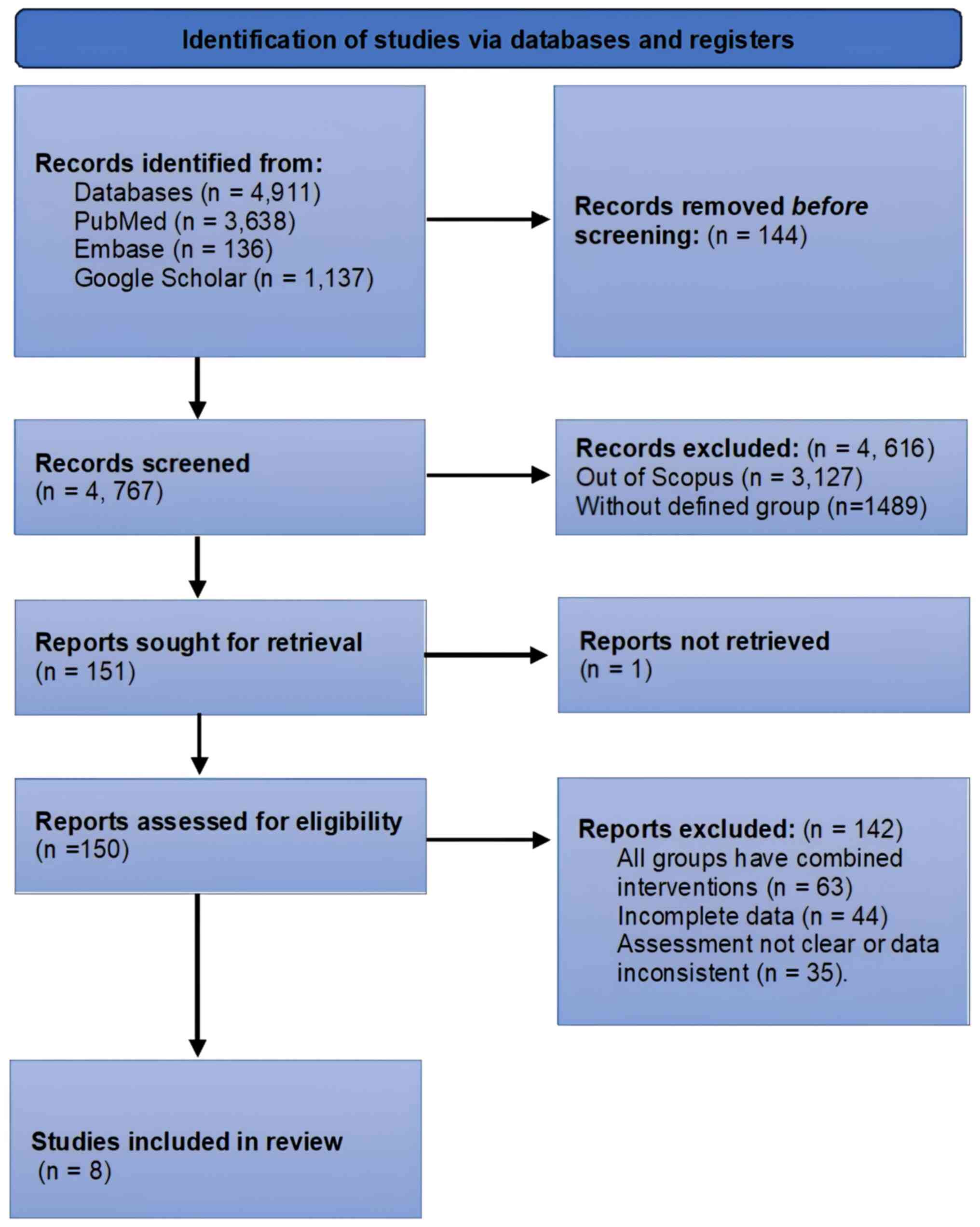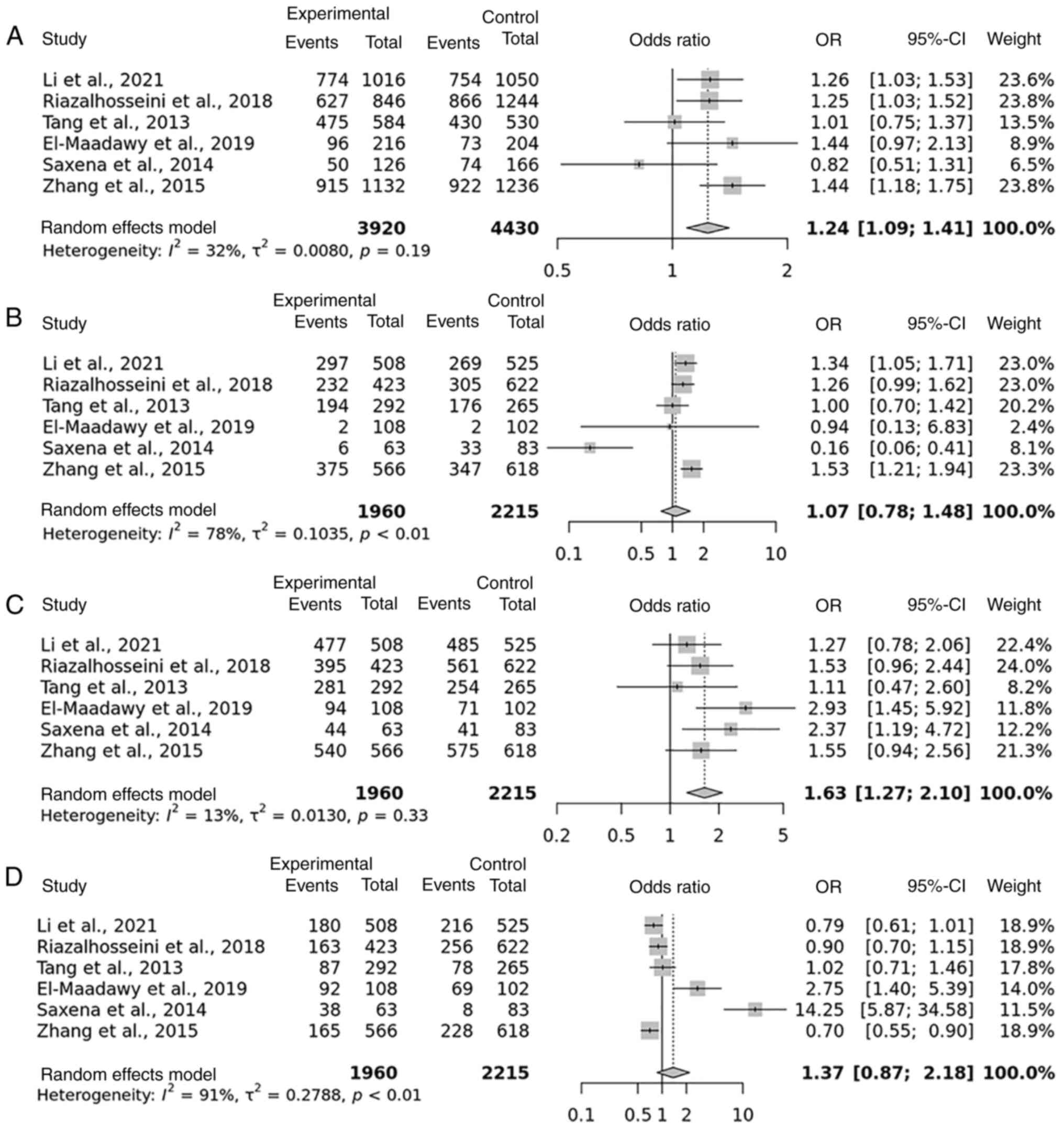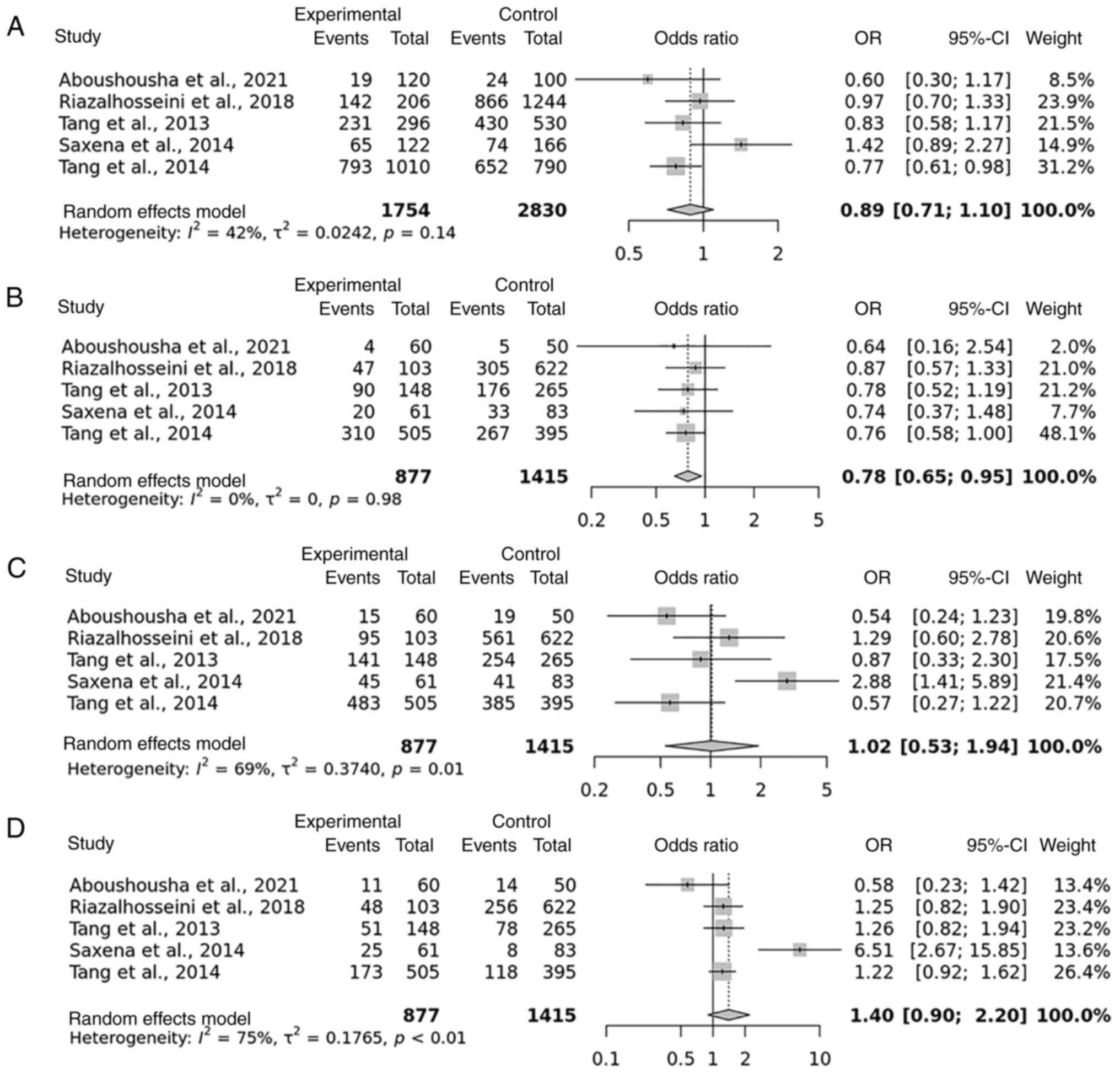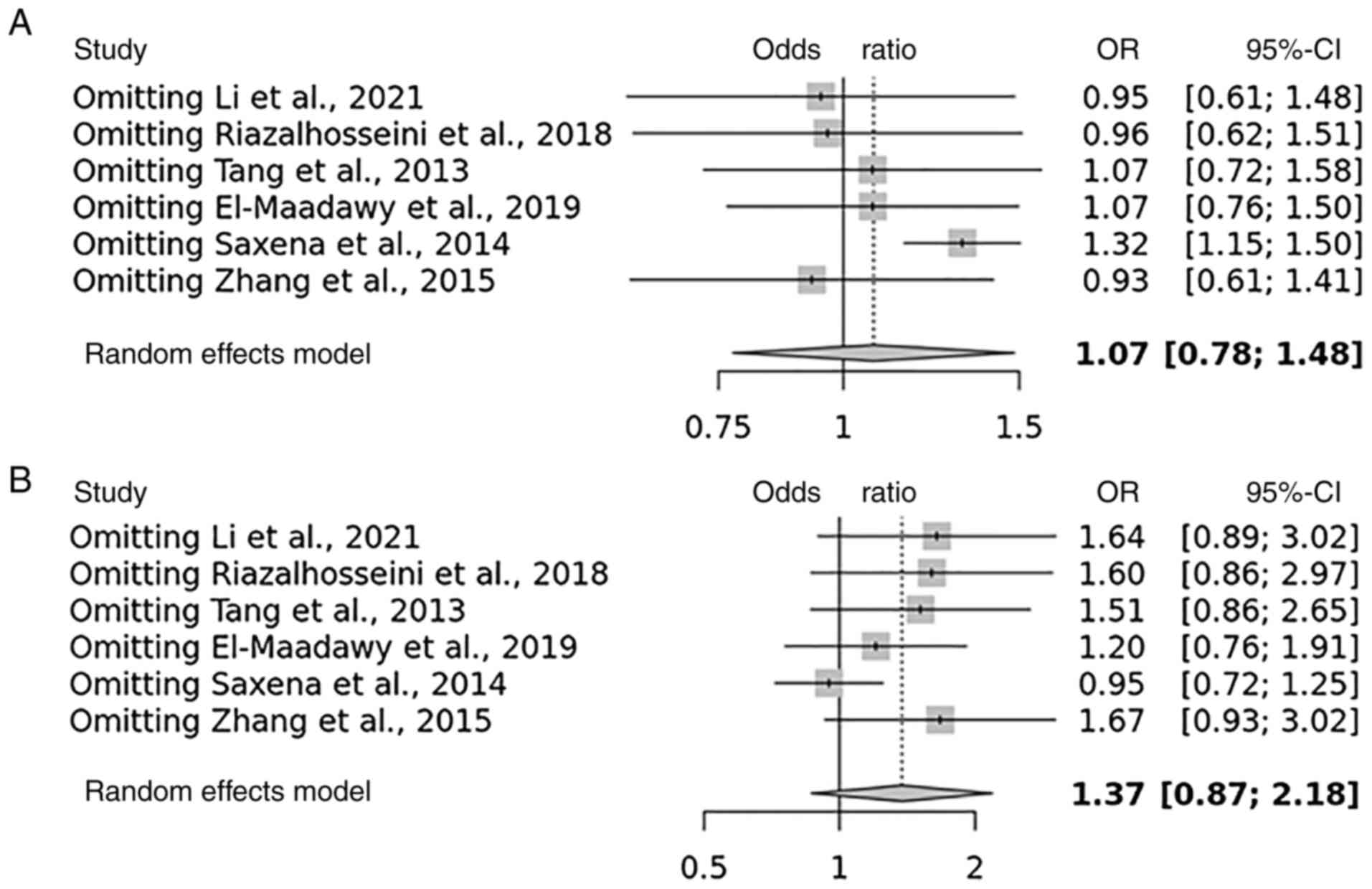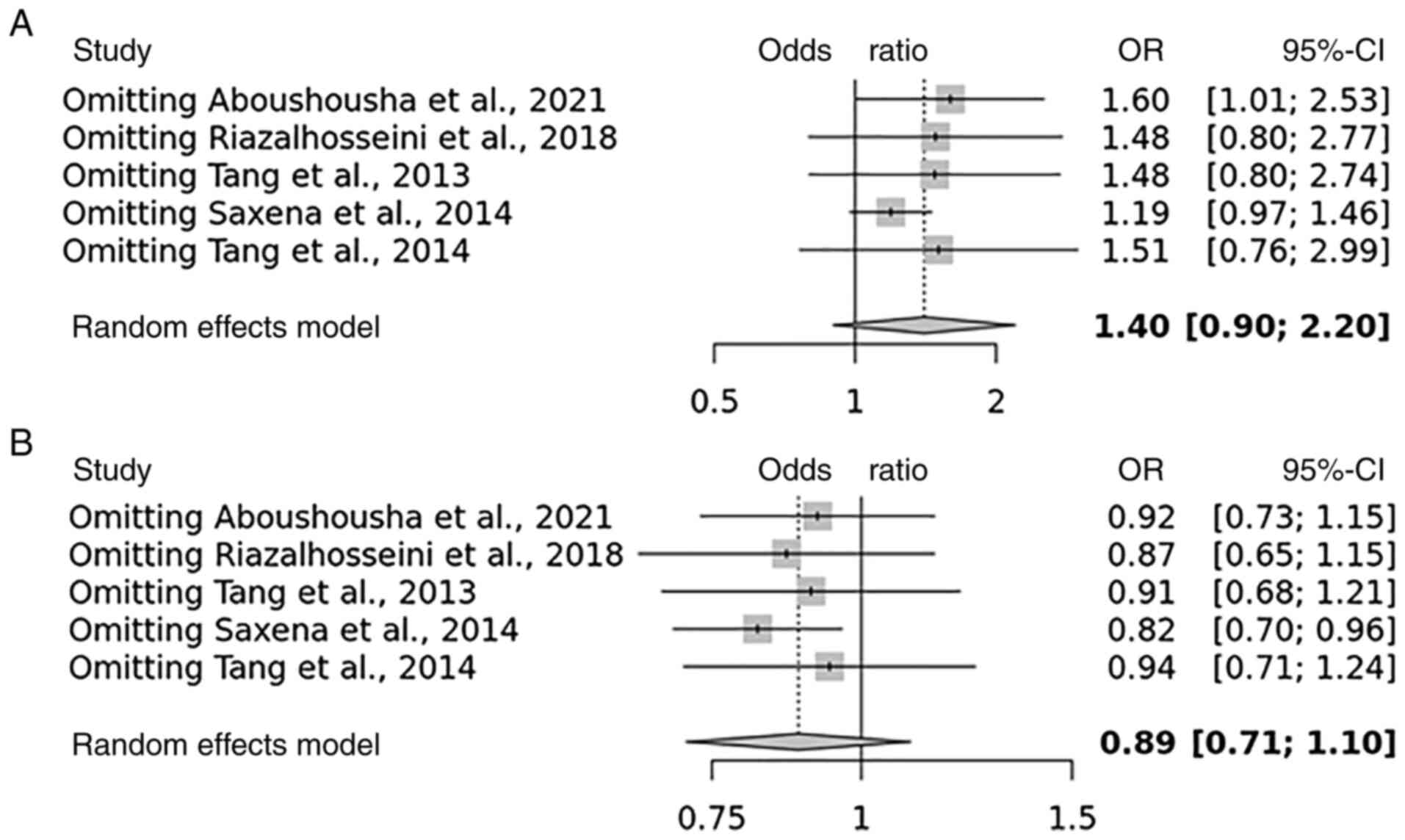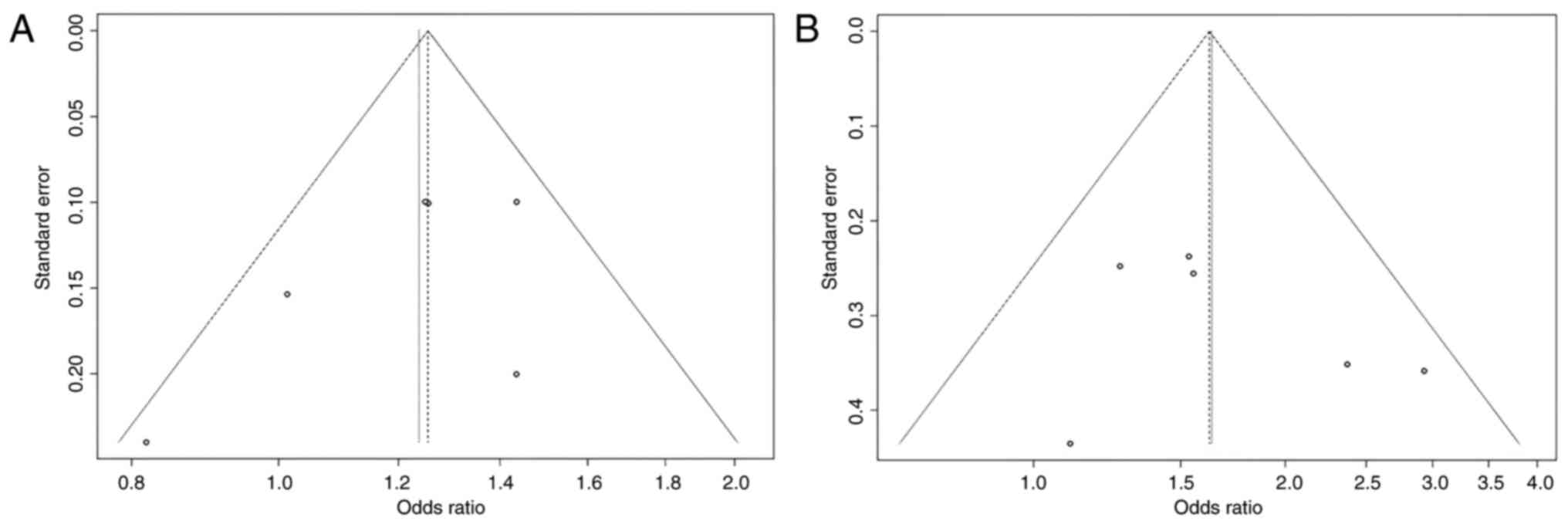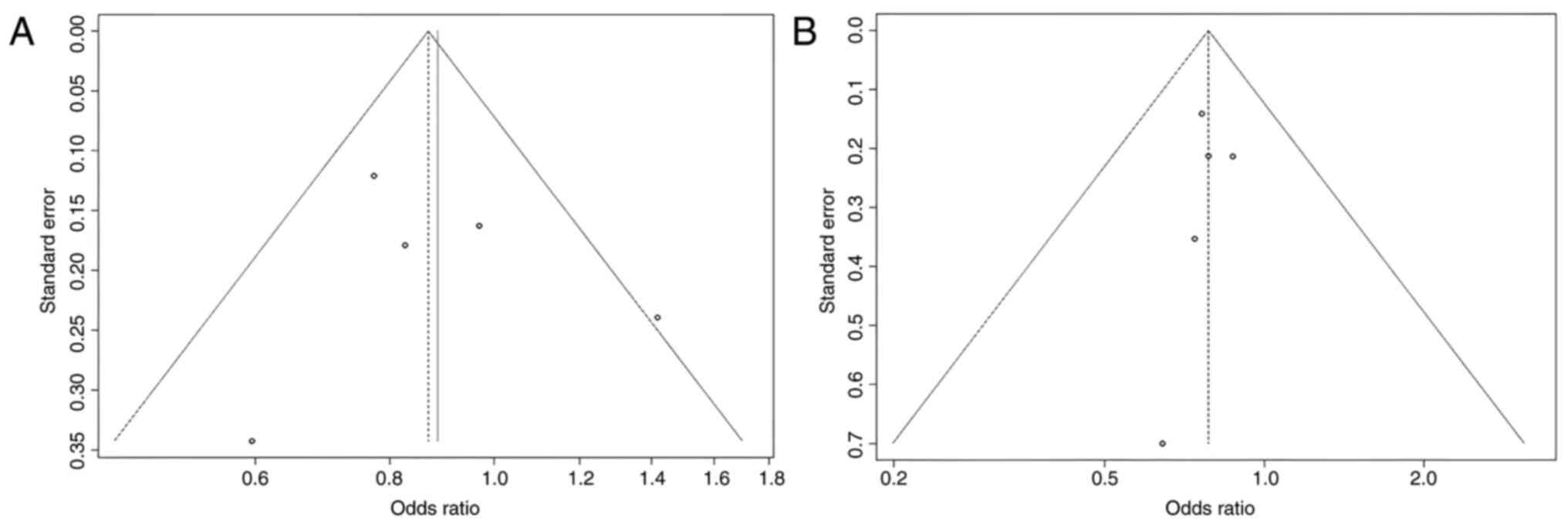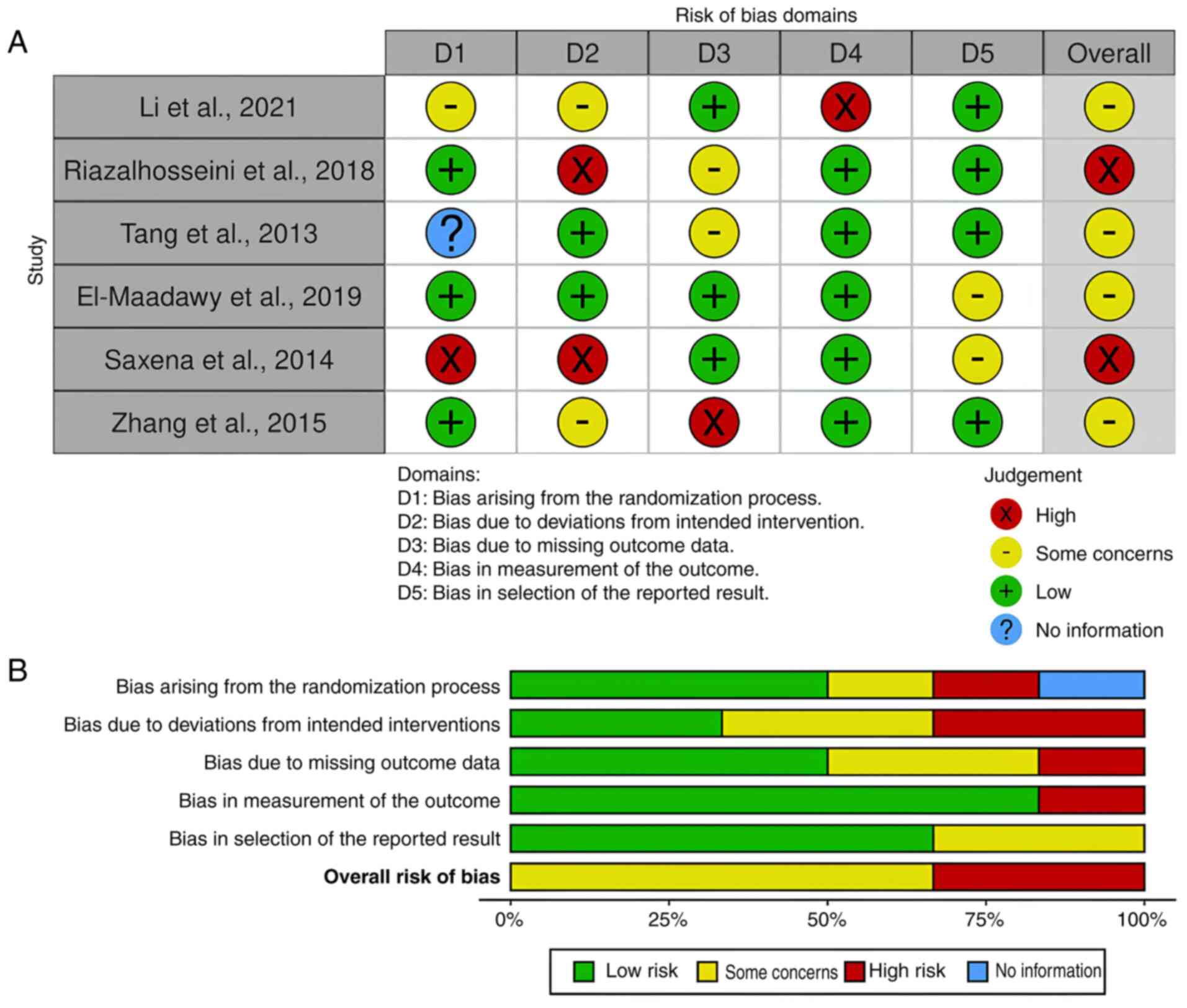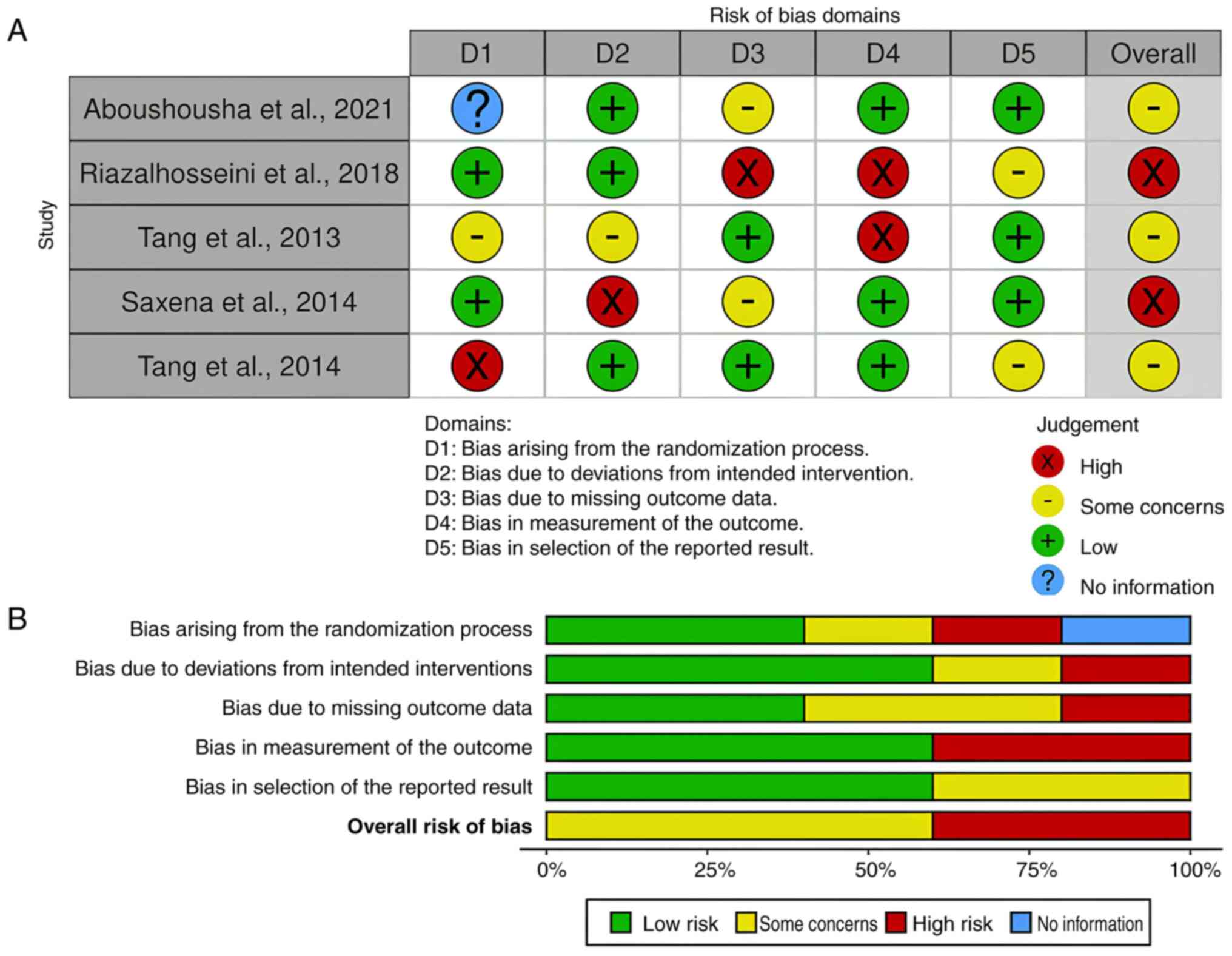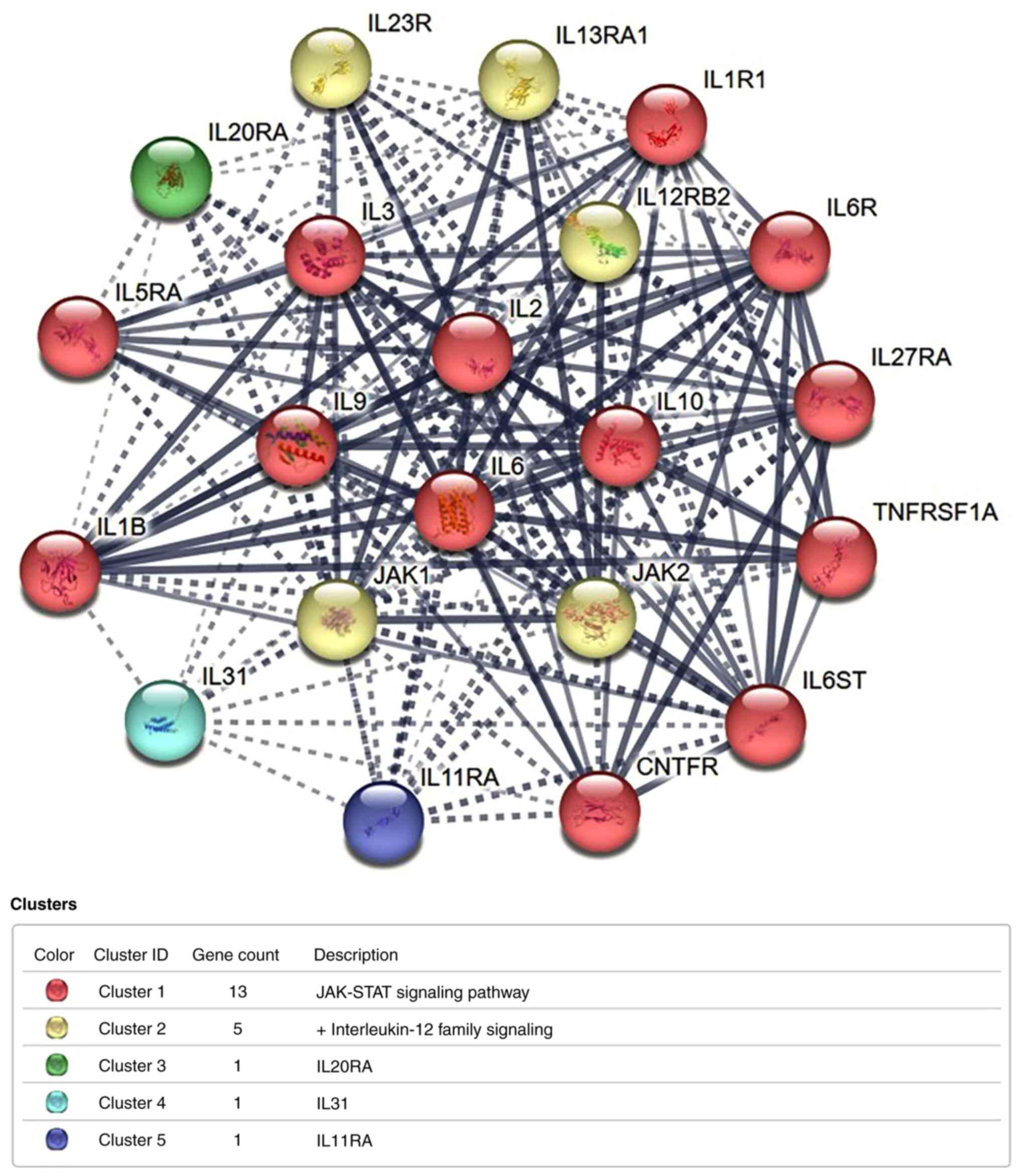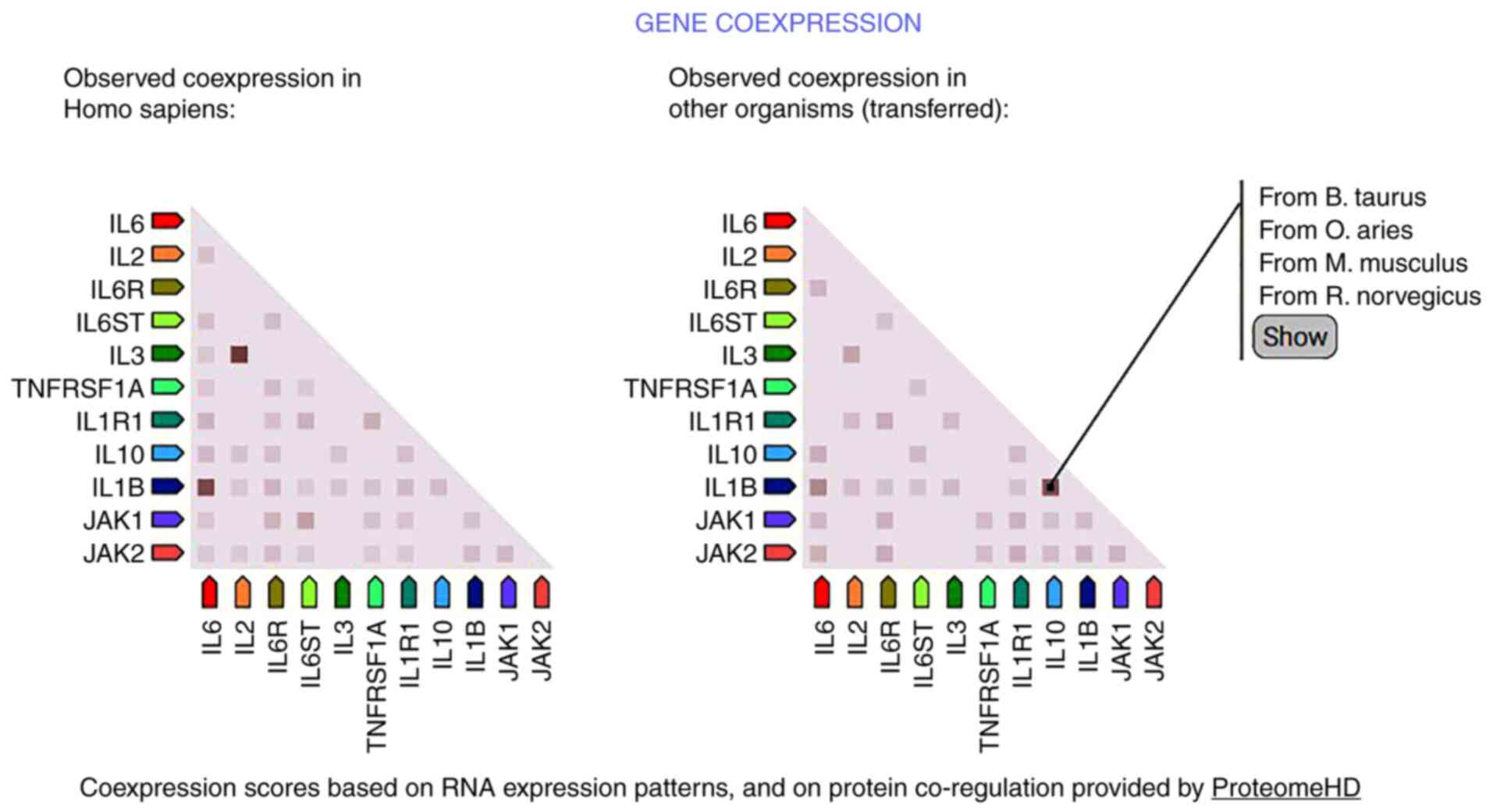|
1
|
Madihi S, Syed H, Lazar F, Zyad A and
Benani A: A systematic review of the current hepatitis B viral
infection and hepatocellular carcinoma situation in Mediterranean
countries. Biomed Res Int. 2020(7027169)2020.PubMed/NCBI View Article : Google Scholar
|
|
2
|
Soriano V, Moreno-Torres V, Treviño A, de
Jesús F, Corral O and de Mendoza C: Prospects for controlling
hepatitis B globally. Pathogens. 13(291)2024.PubMed/NCBI View Article : Google Scholar
|
|
3
|
Sun H, Chang L, Yan Y and Wang L:
Hepatitis B virus pre-S region: Clinical implications and
applications. Rev Med Virol. 31(e2201)2021.PubMed/NCBI View
Article : Google Scholar
|
|
4
|
Lim YS, Kim WR, Dieterich D, Kao JH,
Flaherty JF, Yee LJ, Roberts LR, Razavi H and Kennedy PT: Evidence
for benefits of early treatment initiation for chronic hepatitis B.
Viruses. 15(997)2023.PubMed/NCBI View Article : Google Scholar
|
|
5
|
Ma H, Yan QZ, Ma JR, Li DF and Yang JL:
Overview of the immunological mechanisms in hepatitis B virus
reactivation: Implications for disease progression and management
strategies. World J Gastroenterol. 30:1295–1312. 2024.PubMed/NCBI View Article : Google Scholar
|
|
6
|
Pollicino T and Caminiti G:
HBV-integration studies in the clinic: Role in the natural history
of infection. Viruses. 13(368)2021.PubMed/NCBI View Article : Google Scholar
|
|
7
|
Iannacone M and Guidotti LG: Immunobiology
and pathogenesis of hepatitis B virus infection. Nat Rev Immunol.
22:19–32. 2022.PubMed/NCBI View Article : Google Scholar
|
|
8
|
Xu J, Zhan Q, Fan Y, Yu Y and Zeng Z:
Human genetic susceptibility to hepatitis B virus infection. Infect
Genet Evol. 87(104663)2021.PubMed/NCBI View Article : Google Scholar
|
|
9
|
Aliyu M, Zohora FT, Anka AU, Ali K,
Maleknia S, Saffarioun M and Azizi G: Interleukin-6 cytokine: An
overview of the immune regulation, immune dysregulation, and
therapeutic approach. Int Immunopharmacol.
111(109130)2022.PubMed/NCBI View Article : Google Scholar
|
|
10
|
Neuman MG, Mueller J and Mueller S:
Non-invasive biomarkers of liver inflammation and cell death in
response to alcohol detoxification. Front Physiol.
12(678118)2021.PubMed/NCBI View Article : Google Scholar
|
|
11
|
Zhou C, Zhang N, He TT, Wang Y, Wang LF,
Sun YQ, Jing J, Zhang JJ, Fu SN, Wang X, et al: High levels of
serum interleukin-6 increase mortality of hepatitis B
virus-associated acute-on-chronic liver failure. World J
Gastroenterol. 26:4479–4488. 2020.PubMed/NCBI View Article : Google Scholar
|
|
12
|
Rico Montanari N, Anugwom CM, Boonstra A
and Debes JD: The role of cytokines in the different stages of
hepatocellular carcinoma. Cancers. 13(4876)2021.PubMed/NCBI View Article : Google Scholar
|
|
13
|
Xu J, Lin H, Wu G, Zhu M and Li M:
IL-6/STAT3 is a promising therapeutic target for hepatocellular
carcinoma. Front Oncol. 11(760971)2021.PubMed/NCBI View Article : Google Scholar
|
|
14
|
Li M, Zhuo Y, Xu Y, Chen H, Cheng Z and
Zhou L: Genetic association of interleukin-6 polymorphism
(rs1800796) with chronic hepatitis B virus infection in Chinese Han
population. Viral Immunol. 34:267–272. 2021.PubMed/NCBI View Article : Google Scholar
|
|
15
|
Li W, Wang S, Jin Y, Mu X, Guo Z, Qiao S,
Jiang S, Liu Q and Cui X: The role of the hepatitis B virus genome
and its integration in the hepatocellular carcinoma. Front
Microbiol. 15(1469016)2024.PubMed/NCBI View Article : Google Scholar
|
|
16
|
Qu B and Brown RJ: Strategies to inhibit
hepatitis B virus at the transcript level. Viruses.
13(1327)2021.PubMed/NCBI View Article : Google Scholar
|
|
17
|
Farshadpour F, Taherkhani R and Saberi F:
Molecular evaluation of hepatitis B virus infection and predominant
mutations of pre-core, basal core promoter and S regions in an
Iranian population with type 2 diabetes mellitus: A case-control
study. BMC Infect Dis. 22(553)2022.PubMed/NCBI View Article : Google Scholar
|
|
18
|
Xie C and Lu D: Evolution and diversity of
the hepatitis B virus genome: Clinical implications. Virology.
598(110197)2024.PubMed/NCBI View Article : Google Scholar
|
|
19
|
Zhao Y, Chen K, Yang H, Zhang F, Ding L,
Liu Y, Zhang L, Zhang Y, Wang H and Deng Y: HLA-DR genetic
polymorphisms and hepatitis B virus mutations affect the risk of
hepatocellular carcinoma in Han Chinese population. Virol J.
20(283)2023.PubMed/NCBI View Article : Google Scholar
|
|
20
|
Tang S, Liu Z, Zhang Y, He Y, Pan D, Liu
Y, Liu Q, Zhang Z and Yuan Y: Rather than Rs1800796 polymorphism,
expression of interleukin-6 is associated with disease progression
of chronic HBV infection in a Chinese Han population. Dis Markers.
35:799–805. 2013.PubMed/NCBI View Article : Google Scholar
|
|
21
|
Tang S, Yuan Y, He Y, Pan D, Zhang Y, Liu
Y, Liu Q, Zhang Z and Liu Z: Genetic polymorphism of interleukin-6
influences susceptibility to HBV-related hepatocellular carcinoma
in a male Chinese Han population. Hum Immunol. 75:297–301.
2014.PubMed/NCBI View Article : Google Scholar
|
|
22
|
Zhang G, Wang W, Li S, Yang H, Zhang M,
Zhang P, Wen Y, Wu A, Yang L, Zhou B and Chen X: IL6 gene
allele-specific C/EBPα-binding activity affects the development of
HBV infection through modulation of Th17/Treg balance. Genes Immun.
16:528–535. 2015.PubMed/NCBI View Article : Google Scholar
|
|
23
|
Riazalhosseini B, Mohamed Z, Apalasamy YD,
Shafie NS and Mohamed R: Interleukin-6 gene variants are associated
with reduced risk of chronicity in hepatitis B virus infection in a
Malaysian population. Biomed Rep. 9:213–220. 2018.PubMed/NCBI View Article : Google Scholar
|
|
24
|
Aboushousha T, Emad M, Rizk G, Ragab K,
Hammam O, Fouad R and Helal NS: IL-4, IL-17 and CD163
immunoexpression and IL-6 gene polymorphism in chronic hepatitis C
patients and associated hepatocellular carcinoma. Asian Pac J
Cancer Prev. 22:1105–1113. 2021.PubMed/NCBI View Article : Google Scholar
|
|
25
|
El-Maadawy EA, Talaat RM, Ahmed MM and
El-Shenawy SZ: Interleukin-6 promotor gene polymorphisms and
susceptibility to chronic hepatitis B virus in Egyptians. Hum
Immunol. 80:208–214. 2019.PubMed/NCBI View Article : Google Scholar
|
|
26
|
Saxena R, Chawla YK, Verma I and Kaur J:
IL-6 (-572/-597) polymorphism and expression in HBV disease
chronicity in an Indian population. Am J Hum Biol. 26:549–555.
2014.PubMed/NCBI View Article : Google Scholar
|
|
27
|
Ren H, Guo Z, Qin WJ and Yang ZL:
Association of interleukin-6 genetic polymorphisms
(rs1800795,-174C> G and rs1800796,-572G> C) with risk of
essential hypertension in the Chinese population. Cureus.
15(e46334)2023.PubMed/NCBI View Article : Google Scholar
|
|
28
|
Almolakab ZM, El-Nesr KA, Mohamad Hassanin
EH, Elkaffas R and Nabil A: Gene polymorphisms of Interleukin 6
(-174 G/C) and transforming growth factor β-1 (+915 G/C) in ovarian
cancer patients. Beni-Suef Univ J Basic Appl Sci. 11(30)2022.
|
|
29
|
Zheng S, Qi W, Xue T, Zao X, Xie J, Zhang
P, Li X, Ye Y and Liu A: Chinese medicine in the treatment of
chronic hepatitis B: The mechanisms of signal pathway regulation.
Heliyon. 10(e39176)2024.PubMed/NCBI View Article : Google Scholar
|
|
30
|
Kong F, Tao Y, Yuan D, Zhang N, Li Q, Yu
T, Yang X, Kong D, Ding X, Liu X, et al: Hepatitis B virus core
protein mediates the upregulation of C5α receptor 1 via NF-κB
pathway to facilitate the growth and migration of hepatoma cells.
Cancer Res Treat. 53:506–527. 2021.PubMed/NCBI View Article : Google Scholar
|
|
31
|
Tavakoli Pirzaman A, Alishah A, Babajani
B, Ebrahimi P, Sheikhi SA, Moosaei F, Salarfar A, Doostmohamadian S
and Kazemi S: The role of microRNAs in hepatocellular cancer: A
narrative review focused on tumor microenvironment and drug
resistance. Technol Cancer Res Treat.
23(15330338241239188)2024.PubMed/NCBI View Article : Google Scholar
|
|
32
|
Bovind AP, Marciano F, Mandato C, Siano
MA, Savoia M and Vajro P: Oxidative stress in non-alcoholic fatty
liver disease. An updated mini review. Front Med (Lausanne).
8(595371)2021.PubMed/NCBI View Article : Google Scholar
|
|
33
|
Zhong S, Zhang T, Tang L and Li Y:
Cytokines and chemokines in HBV infection. Front Mol Biosci.
8(805625)2021.PubMed/NCBI View Article : Google Scholar
|
|
34
|
Elbrolosy AM, Elabd NS, ElGedawy GA,
Abozeid M, Abdelkreem M, Montaser B, Eed EM and Elhamouly MS:
Toll-like receptor 2 polymorphism and IL-6 profile in relation to
disease progression in chronic HBV infection: A case control study
in Egyptian patients. Clin Exp Med. 23:117–129. 2023.PubMed/NCBI View Article : Google Scholar
|
|
35
|
Abd El-Baky RM, Hetta HF, Koneru G, Ammar
M, Shafik EA, Mohareb DA, Abbas El-Masry M, Ramadan HK, Abu Rahma
MZ, Fawzy MA and Fathy M: Impact of interleukin IL-6 rs-1474347 and
IL-10 rs-1800896 genetic polymorphisms on the susceptibility of
HCV-infected Egyptian patients to hepatocellular carcinoma. Immunol
Res. 68:118–125. 2020.PubMed/NCBI View Article : Google Scholar
|
|
36
|
Harun-Or-Roshid M, Ali MB, Jesmin
and Mollah MN: Statistical meta-analysis to investigate the
association between the Interleukin-6 (IL-6) gene polymorphisms and
cancer risk. PLoS One. 16(e0247055)2021.PubMed/NCBI View Article : Google Scholar
|
|
37
|
Ahluwalia TS, Prins BP, Abdollahi M,
Armstrong NJ, Aslibekyan S, Bain L, Jefferis B, Baumert J, Beekman
M, Ben-Shlomo Y and Bis JC: . Genome-wide association study of
circulating interleukin 6 levels identifies novel loci. Hum Mol
Genet. 30:393–409. 2021.PubMed/NCBI View Article : Google Scholar
|
|
38
|
Zhang M, Bai Y, Wang Y, Cui H, Tang M,
Wang L, Wang X and Gu D: Cumulative evidence for associations
between genetic variants in interleukin 6 receptor gene and human
diseases and phenotypes. Front Immunol. 13(860703)2022.PubMed/NCBI View Article : Google Scholar
|
|
39
|
Liu Y, Gao SJ, Du BX and Wang JJ:
Association of IL-6 polymorphisms with hepatocellular carcinoma
risk: Evidences from a meta-analysis. Tumour Biol. 35:3551–3561.
2014.PubMed/NCBI View Article : Google Scholar
|



